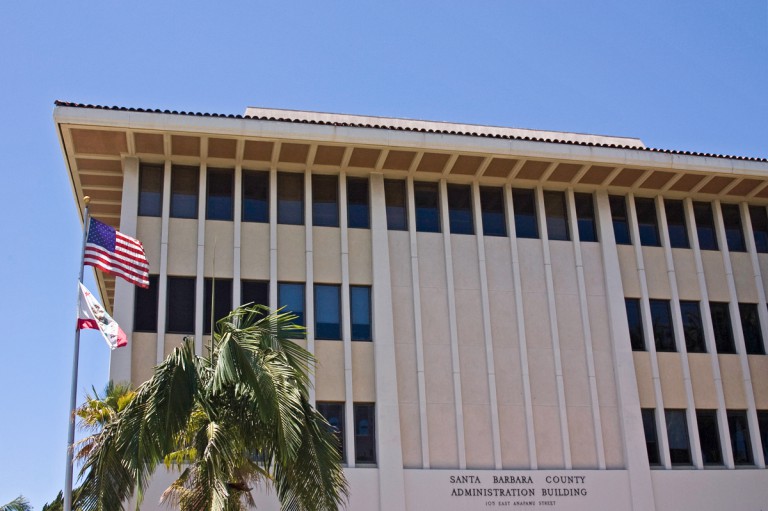
Hector Sanchez Castaneda
Isla Vista Beat Reporter
Members of the Isla Vista Self Governance Initiative will push for an eight percent utility user tax (UUT) when presenting their finalized plan for a community services district (CSD) to the Local Agency Formation Commission (LAFCO) on Thurs., Apr. 7. I.V. residents will have the chance to vote on whether they want the tax approved and the district formed this November.
“This [plan] has been submitted to LAFCO,” Darcel Elliott, district director for the office of Assemblymember Das Williams, said during a Mar. 28 meeting. “It’s our job now to defend this plan to LAFCO.”
Should voters approve these ballot items, the I.V. CSD could be operational by March 2017, at which point the UUT would also take effect among residents of the college town.
Assembly Bill 3 — signed by Gov. Jerry Brown in October of last year — outlines eight services a CSD could potentially offer I.V. residents. But LAFCO must make the final call as to which powers an I.V. CSD can enforce upon implementation, as well as the tax rate that will appear on the ballot this November.
Cameron Schunk, a field representative in Williams’s office, along with Santa Barbara City College Trustee Jonathan Abboud, authored the plan of service submitted to LAFCO. In it, they’ve outlined how much money each service would receive under different income scenarios.
Schunk emphasized the need to get an eight percent tax passed, since some of the proposed services would have to be completely cut due to insufficient funds under the submitted plan’s five percent budget.
“If you put a five percent [tax] and it passes, we’re still going to be paying a tax and we won’t even get great services,” Schunk said.
A UUT targets local consumption of utilities such as electricity, gas, water, cable and sanitation. Though not uncommon in California, such taxes have historically been levied within the state’s more metropolitan regions, including Sacramento, San Francisco and Los Angeles Counties.
The services stakeholders are looking to fund through the CSD include a local Area Planning Commission, a Municipal Advisory Council, community facility management, a tenant-landlord mediation service, community policing, a comprehensive parking survey, graffiti abatement and general street maintenance.
A point of contention in previous meetings had been the salary of a potential CSD general manager. Some said that the $162,500 base salary proposed by last year’s feasibility study was too high, while others argued the large sum is needed to attract worthy candidates.
In response to a recommendation from the Santa Barbara County Auditor-Controller Robert Geis, the managerial base salary was changed to $70,000 a year, with an additional $60,000 allocated for management of MAC and community facilities, according to Elliott.
The plan of service also states that the CSD will contract with the City of Santa Barbara Rental Housing Mediation Program, but new developments have been made that could alter that course of action. The University of California, Santa Barbara Community Housing Office (CHO) has indicated interest in contracting with the district to assist non-student residents with tenant mediation, according to Elliott.
“They said it would be really easy for them to expand [their service],” Elliott said.
Third-year history of public policy major Paola Dela Cruz — who also serves as UCSB’s External Vice President for Local Affairs (EVPLA) within Associated Students — expressed some reservations about the CHO serving non-affiliates in this context. Given the office’s main focus on students, she suggested it may not be properly equipped to handle non-students as well.
A pledged $200,000 yearly payment from UCSB will be fully incorporated into the management and maintenance of the planned community building, according to Schunk.
The LAFCO meeting to decide the CSD’s functional fate will be held Thurs., Apr. 7 at 1 p.m. in the downtown Santa Barbara County Administration Building.










